Section 3: LITHUANIA TODAY
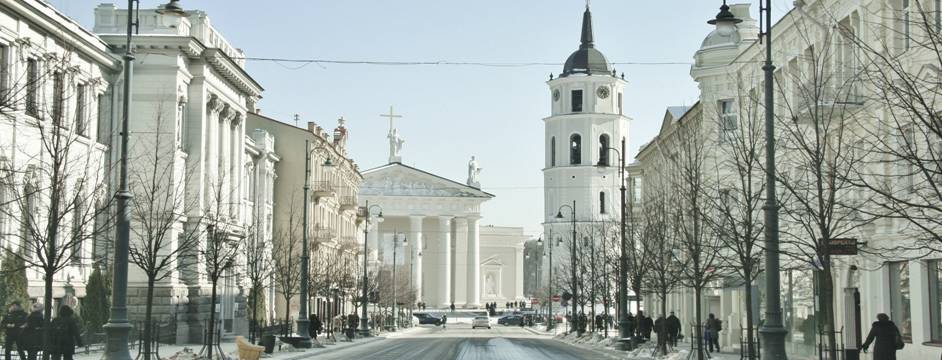

THE VOICE OF INTERNATIONAL LITHUANIA
|
VilNews has its own Google archive! Type a word in the above search box to find any article.
You can also follow us on Facebook. We have two different pages. Click to open and join.
|
Fri, 8th March, 2013 - (0) Comment
We have in recent days had a heated discussion in our VilNews Facebook Forum on whether Vilnius Municipality and the taxpayers should pay for the startup of a new national airline of Lithuania. The debate has subsequently also discussed Mayor Zuokas’ handling of this and other issues, including his dealings with a certain taxi company here in town. Below some of the comments from our VilNews Forum on Facebook:
About the taxpayers

Kostas Cerskus I feel sorry for the tax payers!

Daiva Repeckaite I'm thinking of re-registering in Kaunas to channel my taxes away from Vilnius.
About the planned new airline – AIR LITUANICA

Eythor Edvardsson I think everyone talking here understands the need of good transportation to and from Lithuania. I also believe that airline is a part of a countries identity. People here should not compare to airBaltic who wanted to swallow the world. That is not the case here. Just basic needs as I see it. For lack of flights to and from LT, business suffers but mostly tourism. Lithuania has many great things to offer to the rest of the world, both culture wise as well as business wise.
People forget to calculate why multiple affects great communication brings back to the country as well. I have no fear that this will be going fine.
Why Zokas? This was, if I remember one of his promises before elected, to get things done that the government has been talking about for years with absolutely no success. I have more believe in this in his leadership than in governmental lead. Look forward to see this happen!
Eythor Edvardsson People are coming and going and flight transportation is as necessary as a bridge over a river. You know how much effort I made in this field to see exactly this happen. Who does it is not the case. Just that it is being done.
It is still in my fresh memory when Vilnius was the culture Capital of Europe 2009. What a great opportunity to show the rest of the world the richness in the country’s history and culture. Then, FLYLAL collapsed for all the wrong reasons. And thousands of people who planned to visit the city had no opportunity to do so. All the millions of litas, time and effort of people for years to prepare this cultural year went down the drain. Participation in between 20-30 travel exhibitions around the world were done for nothing. Because? No airline communications. Truly very sad. A great opportunity lost. Driving force in the preparation was the city of Vilnius with Zuokas in the lead. I believe this was hard for him and his people to see and experience. Again, I am happy for LT if this idea gets real wings

Aage Myhre I totally agree with you Eythor Edvardsson. To see a well-founded Lithuanian airline would be nothing but awesome. The question is whether Mayor Zuokas' initiative is a real thing, or if this is just hot air, or maybe something totally different is behind it all?

Sergey Kanovich Every businessman will tell you that the worst business to start is when it is created not out of market needs but out from artificially created interests - someone already mentioned "business" motive - national pride. Which is not a commodity I guess. This market is tough. And all complaining how "bad" is the transport to VNO is not really fair with this statement - you have every major European airline flying in and out. And RyanAir with Wizz Air taking the rest. It is inventing the bicycle. And a nice PR to someone who never had invested a personal penny from his own pocket to all failed projects he had ever initiated before. With what has been published so far this is born to be a failure. I feel really sorry for the taxpayers

Eythor Edvardsson We all know that Zuokas comes with ideas. Some of them materialise, some not. I do hope this one does. Whether there is something ''behind'' this, I cannot see what at this moment. If so, then that will float up one day.

William Adan Pahl A good half the major cities in the USA are in a battle against corruption. Certainly the number is higher worldwide. Las Vegas is a testament to this historically. Before I read up on it will jump on the pro side of this argument in favor of the airline.

Aage Myhre I totally agree with those of you who think that Lithuania should have its own airline, although I personally believe a professional pan-Baltic company, without interference or ownership from the three governments, would be better. Let me give you the example of Norwegian Air Shuttle, which was started by an entrepreneur and a group of investors exactly 10 years ago. Zero governmental participation! Today, this airline is about to become Scandinavia's largest, number 9 in Europe, and in stark contrast to state-owned Scandinavian Airlines having good profits year after year!
See: http://en.wikipedia.org/wiki/Norwegian_Air_Shuttle
![]()
Mayor Zuokas is no Mother Theresa

Sergey Kanovich any "national" mega idea fix is used to drain monies out of the budget (minus 1 billion Lt). That is why I am bit surprised that the driver without a car is paid merely 30,000LT month to make himself busy with trying to prove to 0'Leary that he is completely stupid and is unaware of hidden market possibilities of LT market... The ideas have a price for which he never paid. The price of bad ideas is always higher than the price of good one

Eythor Edvardsson Who the MD is I do not know. But for the right person in this case, 8500 EUR monthly salary would not be a crime.
Sergey Kanovich, when you talk hidden market possibilities, is it something you would like to share with us?

Sergey Kanovich Not a crime??? From a municipal budget with MINUS 1 billion LT that kind of salary is paid to a general without the army? This salary is an overkill in LT by all means. It is immoral to start with. Now, imagine that Reykjavik municipality instead of bringing roads to normal, renovating schools and hospitals etc, etc. having a budget deficit of that scale goes out and tells its citizens - you know what, we will fly you. You will be proud and you will pay for your pride. The rest priorities will wait. I wonder how long Reykjavik's or any other cities mayor would last after such statement. It is a scam. By hidden market possibilities I meant that there are none, because business is driven by market needs. There is no need in this airline. It will not be able to compete. I am sorry, it sounds like a decision to build a copy of Egyptian pyramids which will steal stupid tourist from Egypt.

Daiva Repeckaite A year ago or so, Zuokas promised to pick two homeless men in a shelter and lift them out of poverty. We've never heard of the men again (oops). Otherwise he has a very clear direction - further discriminate and ghettoize the city's poor and create a glossy city for the rich. You might say it is not a crime to prioritize the rich. But public sector redistribution is not necessary for this. The rich can take care of themselves. The purpose of public sector is to have roads, schools and decent living standards available for all.

Eythor Edvardsson Well, we all know Zuokas is no Mother Teresa and never will be.

Daiva Repeckaite Public services are not a charity! It's a government's duty. In 2009, the Conservative-led municipal gov't commissioned a study to find a solution for the Roma housing problem. They considered distributing vans, which would have better sanitary conditions than currently available. After the elections, the Zuokas-led municipal gov't seems to have ditched the study, and Zuokas personally supervised demolitions of the housing that the Roma currently use, in attempts to 'clean' the land before investors are expected to flock there following IKEA's arrival. The airport, btw, is also in the same territory. Not a single public kindergarten was established to meet the ever-growing demand and manage oversubscription. The municipality's lack of interest in urban planning left real estate developers building crammed neighborhoods without schools, parks or even sidewalks (we will see the effect of this in 5-7 years). So, do your basic duties before developing 'ideas'.

Eythor Edvardsson to Daiva Repeckaite: If this ''slice'' is for me, I am not here to stand up for Zuokas in his work. That he can do himself. Again; if for me, you are twisting my words. I come from a country of a strong welfare and I know the meaning if it for a healthy society.
Urban planning and planning in general has always been a mystery to me in Vilnius. It has lead to a chaotic urban areas and I totally agree, will cause problems in future. This city is not growing in a healthy way planning wise.
AIPORT TAXIES

Ulf Hallan Let me add on another perspective. Zuokas has so far started a new taxi company in Vilnius an now wants into the airline competition. What happens to those who actually make their living from this business when they get competition from state or city money? What may we expect next? Vilnius Municipality retail chain? Beauty saloons? Vilnius City Bank?

Daiva Repeckaite Regulations for taxi drivers became much stricter simultaneously. It's true, not all taxi businesses are transparent, but individual drivers barely make a living unless they work a crazy number of hours. When Zuokas taxi was introduced, more meticulous reporting and taxation rules fell on the heads of private businesses. Zuokas may be no Mother Theresa, but he'd better not be Kim Jong-il either.

Eythor Edvardsson No one argues about priorities even though I do want to see a national airline carrier. I will admit that things I am reading here do not look nice at all. This taxi business is at top of my head now because I just arrived back to Vilnius.
I called a taxi from the plane as I was used to do. When the taxi came he drove in circles until he managed to ''steal'' an opportunity for us to jump into the taxi at a dark spot by the airport terminal. So now it is a crime not to take the taxis that are waiting outside the terminal?
Fri, 8th March, 2013 - (0) Comment
It is 8th of March, the International Women’s Day and the beginning of spring in Lithuania. Still snow and ice many places, but the melting process is now obvious. Spring is here!
Photos: Aage Myhre

Two young representatives of the world’s women,
in Vokiečių g. in the heart of Vilnius Old Town.

It's starting to turn green on the slopes around Gediminas' Tower.

The danger of avalanches from the old town roofs is now over.
Here a rooftop views of St. Catherine's Church and the
Europa Tower on the other side of River Neris.
Tue, 5th March, 2013 - (0) Comment

Lithuania has the highest density of white storks in the world,
considered the country’s national bird.
Photo: T. Marčiukaitis www.lietuva.lt
A new project will try to identify why the stork has changed migratory pattern. This writes Science Daily. The investigation has been launched by the University of East Anglia. Since the mid-1980s, a steadily increasing number of storks dropped their annual migration from northern Europe to their winter quarters in Africa.
Instead, both Portugal and Spain are now the final winter destinations for many storks, which feed on large open garbage dumps instead of crossing Sahara as they previously did.
The project will follow 15 adult storks in a year using GPS transmitters. The goal is to examine why they have changed their migratory behavior. GPS transmitters will reveal where storks forage for food and what movements they make between feeding areas.
Before 1995 there were only about 1000 wintering storks in Portugal whereas in 2008 there were over 10,000 wintering storks and the number continues to grow.
It is believed that a combination of climate change and the many open dumps that exist both in Portugal and Spain are among the factors why storks have dropped the long winter trip to Africa.
25 March is Lithuanian Stork Day! See: https://vilnews.com/?p=12622
Sun, 3rd March, 2013 - (0) Comment


Photos: Aage Myhre
I met them at Kaziuko Mugė now this Sunday morning ... The wood carver and the woman who was there to fry fish for the thousands of visitors on the last day of this year's event ... The best outdoor market in the world, and a proud Lithuanian tradition for more than 400 years!
Sun, 3rd March, 2013 - (0) Comment
 By Vin Karnila |
See my slide show: KAZIUKO MUGĖ 2013 from Vilnius, Lithuania CLICK: http://youtu.be/pamXdIGDm2A |
Every year in every town throughout Lithuania, March starts off with the Kaziukas Fair, a ritual that marks the coming of spring, dedicated to St. Casimir, the patron saint of Lithuania. The festival originated in the 17th century, and by the 19th century it had developed into the fair and festival that is now known internationally.
During more ancient times many pilgrims came to Vilnius from various places for the celebration of St. Casimir's Day on the 4th of March which was the day of his passing. After services in the cathedral, the people lingered for a while. And it was this that gave rise to the Kaziukas Fair. Thousands of sellers, buyers and visitors came to these fairs which were held outdoors as they still are today.
I hope you enjoy the slide show of this year’s Kaziuko Mugė I put together for VilNews.com E-Magazine
Thu, 28th February, 2013 - (2) Comment
The world’s best outdoor market
– since the early 1700s!
Text and photos: Aage Myhre, Editor-in-Chief
aage.myhre@VilNews.com
It is so genuine that you can hardly believe it without seeing it with your own eyes. Lithuania's Kaziukas Fair (KAZIUKO MUGE) is like an undiscovered, undisrupted island in the huge ocean of 'plastic commercialism' that unfortunately characterizes so much of our today's fairs, markets and festivals.
Where else in the world can you find an outdoor market and festival that has been going on continuously through 300 years? What other nowadays' market is a declared plastic-free zone? Where else can you find a single market in which an entire nation's population still participates with enormous enthusiasm? In what other country can one experience what thousands of individuals from the countryside and the cities spend so much of their time through a whole year to produce of genuine artefacts - knitted, crocheted, sewed, carpentry - forged by a people who truly treasure their traditions in handicrafts and folk art?
Every single year in every town throughout Lithuania, March starts off with the Kaziukas Fair, a ritual that marks the coming of spring, dedicated to St. Casimir, the patron saint of Lithuania. The festival originated in the 17th century, and by the 19th century it had developed into the fair and festival that is now known internationally.
This year's fair takes place Friday 1st – Sunday 3rd of March and will be celebrated throughout the country, as well as in many Lithuanian strongholds around the world, for the complete weekend.
But the most genuine ones are of course to find in the very homeland, so please do not wait to check with your travel agent, maybe there still are available tickets!
Let’s meet for a mug of local beer and a fresh smoked snack from rural Lithuania!

The Kaziukas Fair is a declared plastic free zone.
Thu, 28th February, 2013 - (1) Comment
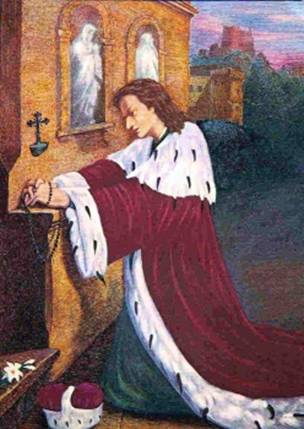
The young prince, Casimir
died at the age of 25 on the 4th of March 1484.
St. Casimir, Lithuania's only Saint, is celebrated on the 4th of March (his death day). This celebration is the origin of the nation's annual Kaziukas Fair.
After his death, St. Casimir was so cherished by Lithuanians that stories of his life and miracles quickly went beyond the church walls and spread through the population and became tales and legends, hence no wonder that he has been so much remembered and celebrated, since the 17th Century primarily through the Kaziukas Fair.
St. Casimir was a true Lithuanian by birth, descending from the famous and respected Gediminaitis clan. The Lithuanian grand dukes Kestutis, Algirdas, Vytautas the Great and others belonged to this family. St. Casimir's father was Kazimieras Jogailaitis who ruled Lithuania (later along with Poland) from 1447.
Thu, 28th February, 2013 - (0) Comment
Tue, 5th February, 2013 - (0) Comment
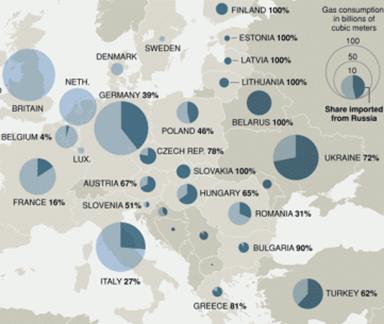
Europe’s dependence on Russian gas.
Lithuania pays 15% more than Latvia and Estonia,
25% more than Germany for the same Russian gas.
While gas prices have tended to fall globally in recent years thanks to deposits of shale gas in places like the U.S., Lithuanian households have looked on in horror in the past seven years as the retail cost of natural gas pumped from Siberia spiked 450 percent — or from $169 to $769 per 1,000 cubic meters.
This writes the Associated Press in an article this week, where they more than suggest that Russia uses its natural gas as a pressure point against Lithuania.
Lithuanians have seen prices soar over the past several years, especially since the shuttering of its only nuclear power plant in 2009, forcing the country to import more Russian gas to keep warm. Lithuania's decision to scrap atomic power over safety concerns has put it under a new kind of threat: intimidation from Russia, which critics say shows no hesitation to use its energy dominance to bully former vassal states.
Lithuania currently pays Russia a wholesale price of about $540 per 1,000 cubic meters of natural gas piped from Siberia, roughly 15 percent more than Baltic neighbors Latvia and Estonia and 25 percent more than Germany, writes Associated Press.
Tue, 5th February, 2013 - (0) Comment
In an opinion article in New York Times this week, Mr. Krugman writes:
Today I’d like to talk about the frantic effort to find some example, somewhere, of austerity policies that succeeded. For the advocates of fiscal austerity — the austerians — made promises as well as threats: austerity, they claimed, would both avert crisis and lead to prosperity.
For the advocates of fiscal austerity — the austerians — made promises as well as threats: austerity, they claimed, would both avert crisis and lead to prosperity.
And let nobody accuse the austerians of lacking a sense of romance; in fact, they’ve spent years looking for Mr. Goodpain.
Thu, 24th January, 2013 - (0) Comment

Is there a new Lithuanian awakening in the making?
What do you, dear reader, think?
By Aage Myhre, editor-in-chief
aage.myhre@VilNews.com
The 22 years that have passed since January 1991, when the Lithuanian people in an exemplary, peaceful manner stood up against the violent Soviet re-occupation, have only rarely lived up to the expectations I and many with me had by then.
Neither Landsbergis, Brazauskas, nor later leaders delivered when the new statehood was to be developed during the 1990s.
The country's newfound freedom did not lead to the type of growth and better living conditions for the broad masses, that had been expected. Also, the warmer, friendlier and more human society we all waited for never occurred. When the people who had shown their support for the new won independence from the Soviet Union returned to their towns and villages in the spring of 1991, much of the community spirit was gone and did not appear since.
Different leaders have since those days made some half-hearted attempts to regain team feeling, cooperation and community spirit within groups of the Lithuanian people. These attempts have largely been met with shrug and distrust, and few politicians have gained genuine respect of their own people.
The EU membership in 2004 did not become the boost that had been expected. Certainly, the economy enjoyed a positive step forward, but not much positive happened for the broad masses of the people.
Therefore, the most striking result of the membership and the open borders to the West, was a mass exodus unparalleled in and for any other country of today.
The enormous crisis that began in 2008 made the situation even worse, almost unbearable for many, and one felt that it was only a matter of time before the country would collapse, emptied of inhabitants.
Then, a year or two ago, I felt that something was happening down in the grassroots of business people and others. I discovered more and more young professionals who began to define their own paths, no longer waiting for the older generations of leaders to show the way.
When I this year marked 13 January in the Lithuanian Parliament Building, 22 years after I in 1991 stood there with Professor Landsbergis looking out the window at the bonfires, barricades and the huge crowd of unarmed people who had gathered to protect their president and the country's future as a free nation, I saw something completely new to me …
Thu, 17th January, 2013 - (1) Comment

| Political groups | Social Democratic (38) |
The Seimas of the Lithuanian Republic (Lithuanian: Lietuvos Respublikos Seimas), or simply the Seimas is the unicameral Lithuanian parliament. It has 141 members that are elected for a four-year term. About half of the members of this legislative body are elected in individual constituencies (71), and the other half (70) are elected by nationwide vote according to proportional representation. A party must receive at least 5%, and a multi-party union at least 7%, of the national vote to be represented in the Seimas.
Fri, 21st December, 2012 - (0) Comment
The Winter Solstice is unique among days of the year — the time of the longest night and the shortest day. The dark triumphs but only briefly. For the Solstice is also a turning point. From now on (until the Summer Solstice, at any rate), the nights grow shorter and the days grow longer, the dark wanes and the Sun waxes in power. From the dark womb of the night, the light is born.
Sun, 9th December, 2012 - (0) Comment
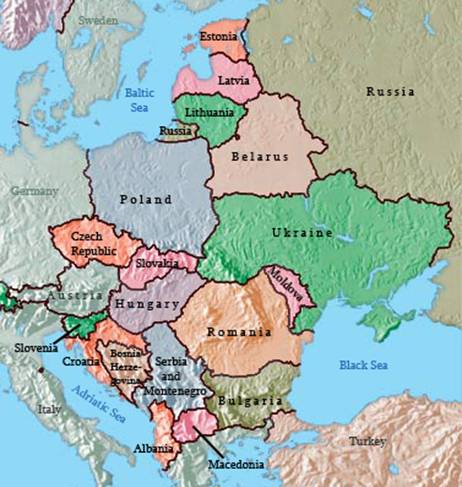
A constantly relevant focus of CEEC is Russia's increased use of
"soft power" against Lithuania and the other 17 countries that
constitute Central and Eastern Europe.
Member of our VilNews Honorary Council and regular contributor as a columnist, Dr. Stan Backaitis, is also a member of the Central and East European Coalition (CEEC), Eastern Europe's watchdog in the United States. A constantly relevant focus of this organization is Russia's increased use of "soft power" against Lithuania and the other 17 countries that constitute CEE. Dr. Backaitis today has made us aware of a new U.S. law in the country's relations with Russia. The new law grants Russia and Moldova permanent normal trade relations, but it is coupled with the Sergei Magnitsky Rule of Law Accountability Act, which honors a dead Russian. The law blacklists Russians connected to the death of Magnitsky in police custody and to other gross human rights violations, prohibiting entrance to the United States and use of its banking system.
See also:
Russia can turn the lights out on Lithuania any time it pleases
Sun, 9th December, 2012 - (0) Comment
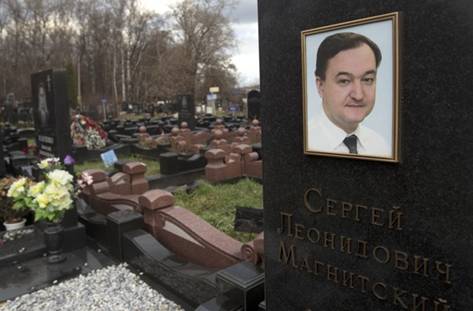
A tombstone on the grave of lawyer Sergei Magnitsky, who died in jail, at a cemetery in Moscow. A new law blacklists Russians connected to the death of Magnitsky in police custody.
The Washington Post
MOSCOW — The U.S. Senate on Thursday repealed a trade sanction imposed 38 years ago to force the Soviet Union to allow Jews and other religious minorities to emigrate, replacing it with a modern-day punishment for human rights abuse that has enraged Russian officials.
The old law, one of the last vestiges of the Cold War, was called the Jackson-Vanik Amendment, named after a U.S. senator and a representative. The new law, passed 92 to 4, grants Russia and Moldova permanent normal trade relations, but it is coupled with the Sergei Magnitsky Rule of Law Accountability Act, which honors a dead Russian. The law blacklists Russians connected to the death of Magnitsky in police custody and to other gross human rights violations, prohibiting entrance to the United States and use of its banking system.
“Today, we close a chapter in U.S. history,” Sen. Benjamin L. Cardin (D-Md.), one of the prime movers of the Magnitsky bill, said during the debate on Jackson-Vanik. “It served its purpose. Today, we open a new chapter in U.S. leadership for human rights.”
How the United States can best promote democracy and human rights in Russia — and elsewhere — became a matter of agonizing and often bitter debate as pressure grew to repeal Jackson-Vanik. Not only was it widely considered a relic with the dissolution of the Soviet Union in 1991 and freedom to emigrate from Russia, but, under the regulations of the World Trade Organization, which Russia joined this year, it also penalized American exporters.
Sun, 9th December, 2012 - (0) Comment
VilNews e-magazine is published in Vilnius, Lithuania. Editor-in-Chief: Mr. Aage Myhre. Inquires to the editors: editor@VilNews.com.
Code of Ethics: See Section 2 – about VilNews. VilNews is not responsible for content on external links/web pages.
HOW TO ADVERTISE IN VILNEWS.
All content is copyrighted © 2011. UAB ‘VilNews’.